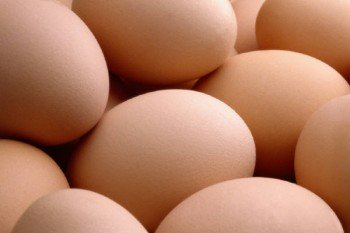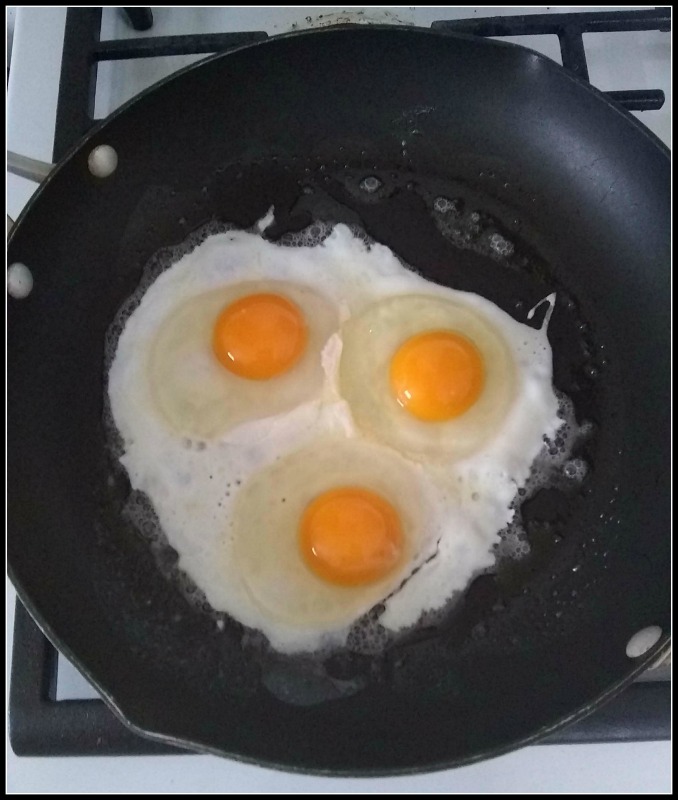Eggs Nutrition for Radiant Skin, Gorgeous Hair and a Sharp Brain
The eggs nutrition
information listed on this page is for non medical use only. For your safety, any concerns or questions about eggs need to be discussed
with your health care provider.
Daily Public Service Announcements
Began in the 1970s

I remember that in the 1970s, the American Heart Association televised warnings that
eggs were very dangerous for the heart.
These televised warnings indicated that we should consume no more than
two or three eggs per week. These warnings were very frightening.
This publicized information caused a huge public scare and almost collapsed the
egg industry.
Many nutritional scientists feel that this recommendation to avoid eggs was flawed and incorrect. For reasons
unknown, in 1999, when new, updated information came out that eggs were
safe, they failed to inform the public.
Journal of the American Medical Association (JAMA)
In 1999, after a study conducted on 118,000 people, the Journal of the
American Medical Association (JAMA) concluded that there was no evidence of an
overall significant association between egg consumption and heart
disease. The findings concluded that people who ate five or six eggs a
week had a lower risk of heart disease than those who ate less than one
egg per week.
Click here to read JAMA's fascinating egg study.
Our Experience
When my son was eleven, all I could
get him to eat was eggs. My son loves eggs. My son was eating six to seven eggs per day. At that time,
my belief was that eggs nutrition would be detrimental to his health.
After a bit of convincing, we went to the doctor to have his cholesterol
checked. The doctor backed me up. She told my son that eating so many
eggs would make his cholesterol go through the roof.
They tested his blood and called us back two days later. His blood tests were perfectly normal. After this discovery, I studied very hard to understand the science of eggs, cholesterol and human anatomy.
Eggs Nutrition Cholesterol Facts
In a study conducted in 1994, 24 people were given two eggs a day for
six weeks. The participants of this study had HDL levels that went up
10 percent, and their total cholesterol went up a mere 4 percent. It
has been medically stated that a negative egg/cholesterol reaction only
happens in very rare cases.
One large egg contains 213 mg of cholesterol. Cholesterol is actually a very important nutrient. Cholesterol is an essential component of membranes. Cholesterol is needed for creating hormones, including testosterone, estrogen and progesterone.
Cholesterol is used to produce brain tissue development,
cell walls, and helps to produce Vitamin D. Our bodies make
800 to 1500 mg of cholesterol each day. The rest comes from food. Our
bodies only absorb about 10 percent of the cholesterol contained in
foods we eat, like egg yolks or dairy.
Click here for Doctors Bust Medical Myths and Lies. Dr. Oz gives medical advice for eggs nutrition and more information about their cholesterol content.

Eggs Nutrition and Choline
Eggs are a rich source of choline, which acts as a B Vitamin-like agent. The choline found in eggs are a vital nutrient for the fetal brain.
New research has shown that choline is also an excellent deterrent for Alzheimer's disease.
The brain needs choline to synthesize the neurotransmitter
Acetylcholine, which is used to create memories. This chemical is
completely lacking in Alzheimer's brains. Your body cannot make choline.
One egg yolk provides approximately 125 mg of choline. So eggs are
basically an essential brain food.
The fat and cholesterol in eggs is extremely important for your health. Click here for more information on the health benefits of fat and cholesterol.
Are Powdered or Dried Eggs a Wise Choice?
Powdered eggs have a very long shelf life. They can last five or ten years. Powdered eggs contain powdered milk and vegetable oil. Powdered eggs have a dry mixture that contains too many Omega-6s, and are considered unsafe. The cholesterol in dried or powdered eggs is oxidized and may possibly contribute to atherosclerosis.

Health Benefits of Eggs
- Eggs are a nutritional powerhouse. Eggs nutrition contain amino acids that are ideal for humans.
- Eggs contain zinc which is essential for wound healing. Zinc is
necessary for the function of brain neurotransmitters. Zinc is critical
for the growth of supple skin and shiny
hair. Eggs have been shown to increase the density in hair, and is the
number one hair food.
- Eggs contain lecithin. Lecithin helps the body to digest fat and cholesterol.
- Eggs have vital antioxidants like glutathione which helps other antioxidants fight cancer and prevents oxidation of LDL.
- Eggs contain Riboflavin (B-2) which regulates the function of nerves and the heart.
- Eggs contain Niacin (B-3) which is used to synthesize sex hormones.
- Eggs have Vitamin B-12 which aids in the formation of DNA.
Vitamin B-12 is also used to build the myelin sheath that encircles
nerve fibers.
Egg Yolk Heaven
- Egg yolks are very rich in carotenes, leutin and zeaxanthin.
These antioxidants are good for the eyes and prevent macular
degeneration.
- Egg yolks provide a rich source of biotin which is
essential for thick hair, vibrant youthful skin and healthy nerves. Biotin also
aids in the digestion of foods such as fat and protein.
- Egg yolks contain Vitamin D which is important for the growth of
healthy bones and teeth.
- Egg yolks have lots of Vitamin A. Vitamin A repairs cell damage.
Vitamin A keeps our eyes healthy, strengthens our immune systems, keeps
our skin healthy and glowing, and aids in tooth development.
More Eggs Nutrition Facts
- Liquid eggs are a type of industrialized egg that do not contain
the necessary amount of Omega 3s to Omega 6s. The ratio of Omega-3s to
Omega-6s should be 1:1. In industrialized eggs, the ratio is tilted
towards an imbalance of Omega-6s causing inflammation.
- Egg Storage: Eggs keep well when they're refrigerated. Eggs can last up to two months in the refrigerator.
- Eggs nutrition is an important aid for weight loss. Eggs are very low on the glycemic index,
making them an ideal choice for dieters. A full sized egg only contains
90 calories, and the egg white contains 17 calories. Eggs can satisfy
hunger for hours and satisfy the daily recommended protein for vegetarians.
- Free-range eggs have the best nutritional qualities. Free-range chickens are allowed to roam free,
and eat their natural diet of bugs and worms. Chickens allowed to roam free produce large, beautiful eggs. The shells are heavy and thick, and the yolks are much darker than industrialized eggs.
- Chickens are not vegetarians. If you see vegetarian eggs,
these chickens are caged and fed a vegetarian diet. A vegetarian diet does not provide the wide range of nutrients that
free-range chickens are exposed to.
- Organic eggs from free-range chickens provide humans with the correct ratio of Omega 3s to Omega 6s.
Sheree Gilkey is a participant in the Amazon Services LLC Associates Program, an affiliate advertising program designed to provide a means for sites to earn advertising fees by advertising and linking to amazon.com





